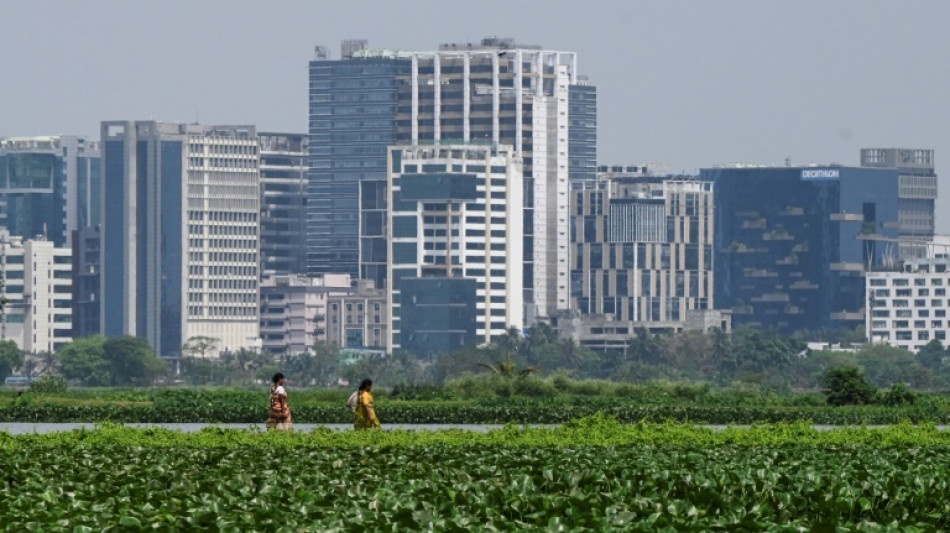
-
 African leaders praise Pope Francis's 'legacy of compassion'
African leaders praise Pope Francis's 'legacy of compassion'
-
Mehidy's five wickets help Bangladesh fight back in first Zimbabwe Test

-
 'The voice of god': Filipinos wrestle with death of Pope Francis
'The voice of god': Filipinos wrestle with death of Pope Francis
-
Prayers, disbelief in East Timor after Pope Francis death
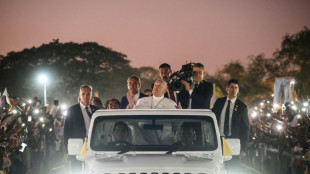
-
 Real Madrid hold minute's silence as La Liga mourns Pope Francis
Real Madrid hold minute's silence as La Liga mourns Pope Francis
-
World leaders pay tribute to Pope Francis, dead at 88

-
 World leaders react to the death of Pope Francis
World leaders react to the death of Pope Francis
-
Zimbabwe lead first Test despite Bangladesh spinner Mehidy's five wickets

-
 Vatican postpones sainthood for 'God's influencer' after pope's death
Vatican postpones sainthood for 'God's influencer' after pope's death
-
Pope's death prompts CONI to call for sporting postponements, minute's silence
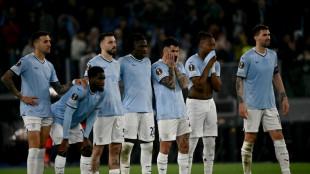
-
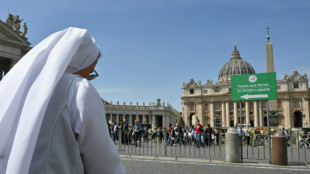 Stunned and sad, faithful gather at St Peter's to remember Francis
Stunned and sad, faithful gather at St Peter's to remember Francis
-
Asian scam centre crime gangs expanding worldwide: UN
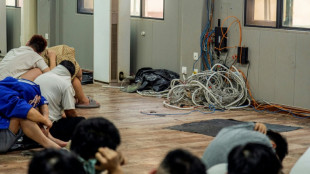
-
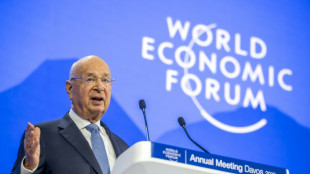 Davos meet founder Klaus Schwab steps down from WEF board
Davos meet founder Klaus Schwab steps down from WEF board
-
Himalayan snow at 23-year low, threatening 2 billion people: report
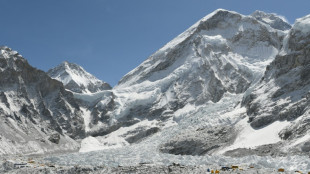
-
 The beautiful game: Pope Francis's passion for football
The beautiful game: Pope Francis's passion for football
-
Clerical sex abuse: Pope Francis's thorniest challenge
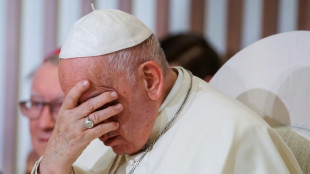
-
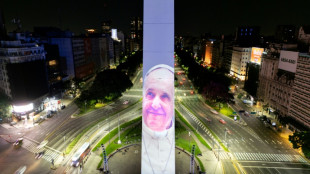 Pope Francis's delicate ties with politics in Argentina
Pope Francis's delicate ties with politics in Argentina
-
Russia resumes attacks on Ukraine after Easter truce
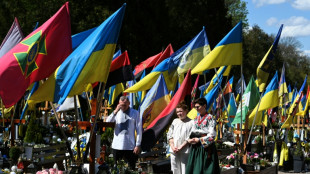
-
 Pope Francis has died aged 88
Pope Francis has died aged 88
-
Gaza civil defence describes medic killings as 'summary executions'
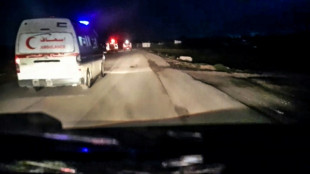
-
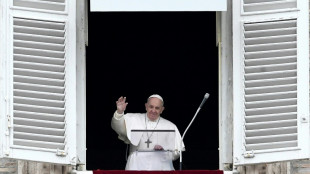 Francis: radical leader who broke the papal mould
Francis: radical leader who broke the papal mould
-
Oscar stars, Max keeps mum, Sainz alive - Saudi GP talking points

-
 Iyer, Kishan win back India contracts as Pant's deal upgraded
Iyer, Kishan win back India contracts as Pant's deal upgraded
-
Vance lands in India for tough talks on trade

-
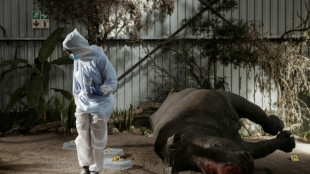 Inside South Africa's wildlife CSI school helping to catch poachers
Inside South Africa's wildlife CSI school helping to catch poachers
-
Nigerian Afrobeat legend Femi Kuti takes a look inward

-
 Kim Kardashian: From sex tape to Oval Office via TV and Instagram
Kim Kardashian: From sex tape to Oval Office via TV and Instagram
-
Vance in India for tough talks on trade
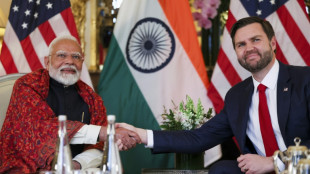
-
 Thunder crush Grizzlies as Celtics, Cavs and Warriors win
Thunder crush Grizzlies as Celtics, Cavs and Warriors win
-
Vance heads to India for tough talks on trade
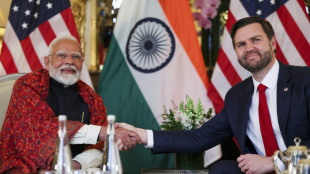
-
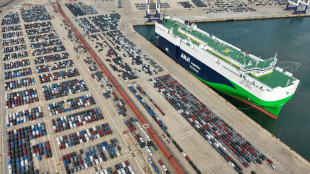 China slams 'appeasement' of US as nations rush to secure trade deals
China slams 'appeasement' of US as nations rush to secure trade deals
-
'Grandpa robbers' go on trial for Kardashian heist in Paris

-
 Swede Lindblad gets first win in just third LPGA start
Swede Lindblad gets first win in just third LPGA start
-
Gold hits record, dollar drops as tariff fears dampen sentiment
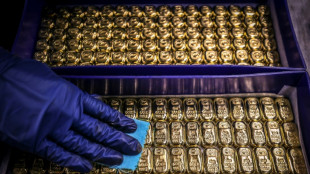
-
 As Dalai Lama approaches 90, Tibetans weigh future
As Dalai Lama approaches 90, Tibetans weigh future
-
US defense chief shared sensitive information in second Signal chat: US media

-
 Swede Lingblad gets first win in just third LPGA start
Swede Lingblad gets first win in just third LPGA start
-
South Korea ex-president back in court for criminal trial

-
 Thunder crush Grizzlies, Celtics and Cavs open NBA playoffs with wins
Thunder crush Grizzlies, Celtics and Cavs open NBA playoffs with wins
-
Beijing slams 'appeasement' of US in trade deals that hurt China
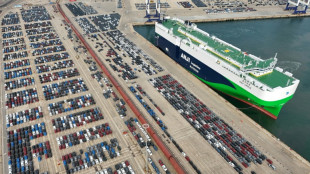
-
 Trump in his own words: 100 days of quotes
Trump in his own words: 100 days of quotes
-
Padres say slugger Arraez 'stable' after scary collision

-
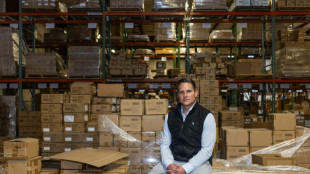 Trump tariffs stunt US toy imports as sellers play for time
Trump tariffs stunt US toy imports as sellers play for time
-
El Salvador offers to swap US deportees with Venezuela
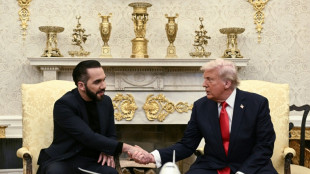
-
 Higgo holds on for win after Dahmen's late collapse
Higgo holds on for win after Dahmen's late collapse
-
Moolec Science Enters Into Transformational Transaction Expanding Across Multiple Technology Platforms

-
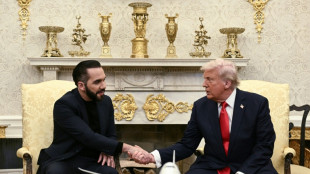 El Salvador's president proposes prisoner exchange with Venezuela
El Salvador's president proposes prisoner exchange with Venezuela
-
Gilgeous-Alexander, Jokic, Antetokounmpo named NBA MVP finalists

-
 Thomas ends long wait with playoff win over Novak
Thomas ends long wait with playoff win over Novak
-
Thunder rumble to record win over Grizzlies, Celtics top Magic in NBA playoff openers


The 'kidneys of Kolkata': Indian wetlands under threat
Wetlands just outside India's Kolkata have for generations provided tonnes of food daily and thousands of jobs as they filter sewage through fish ponds -- but rapid urbanisation is threatening the ecosystem.
Conservationists warn that pollution and strong-arm land grabs are putting a lifeline for the megacity's 14 million residents at risk.
"We are destroying the environment," said Tapan Kumar Mondal, who has spent his life farming fish in the ingenious system of canals and ponds stretching across about 125 square kilometres (48 square miles).
"The population... has increased, there is a pressure on nature, they are ruining it," 71-year-old Mondal added.
Listed as a wetland of global importance under the United Nations Ramsar convention, the waters offer natural climate control by cooling sweltering temperatures -- and act as valuable flood defences for low-lying Kolkata.
But Dhruba Das Gupta, from the environmental group SCOPE, said that short-sighted building development was encroaching on the wetlands.
"The wetlands are shrinking," said the researcher, who is trying to finance a study of what is left of the waters.
- 'Ecologically-subsidised city' -
Every day, 910 million litres of nutrient-rich sewage flow into the wetland, feeding a network of about 250 hyacinth-covered ponds.
"Sunlight and the sewage create a massive plankton boom," said K. Balamurugan, chief environment officer for West Bengal state, explaining that the microorganisms in the shallow fish ponds feed rapidly growing carp and tilapia.
Once the fish have had their fill, the water runoff irrigates surrounding rice paddies and the remaining organic waste fertilises vegetable fields.
"The sewage of the city is being naturally treated by the wetlands," Balamurugan said, giving them the nickname the "kidneys of Kolkata".
The community-developed system was created by "the world's foremost connoisseurs of wastewater wise use and conservation", according to its UN Ramsar listing, which also warns it is under "intense encroachment stress of urban expansion".
The late ecologist Dhrubajyoti Ghosh, who played a key role in the 2002 Ramsar submission, called Kolkata an "ecologically-subsidised city".
The wetlands system processes about 60 percent of Kolkata's sewage free of charge, saving the city over $64 million a year, according to a 2017 University of Calcutta study.
Farms in the wetlands provide about 150 tonnes of vegetables daily, 10,500 tonnes of fish annually and employ tens of thousands of people, the Ramsar listing estimates.
For Kolkata, on the vast delta where the Ganges River meets the Indian Ocean, the wetlands also provide flood defences for a city facing rising sea levels due to climate change.
"This city never faced any flooding issue," Balamurugan added. "These wetlands are acting as a natural sponge, taking the excess rainwater."
Das Gupta said the biodiversity hotspot also "plays a very important role in stabilising the climate", calling the wetlands "the lifeline of Kolkata".
"The wetlands have to stay, because of the cooling that they achieve by their very presence," she said.
- 'Land is being snatched' -
But the Ramsar listing notes that industrial effluent is tainting natural systems, threatening food production.
Fish farmer Sujit Mondal, 41, said that compared to last year "production has reduced" because of "murky water".
About 95 percent of the wetlands are in private hands.
As land prices surge, environment officials say they have pleaded with people not to fill in the fish ponds to create new building space.
"We asked them not to convert the wetlands, not to trade these wetlands to buildings, not to get them filled," Balamurugan said.
But residents say village councils are being bribed by land-hungry developers.
"They are often accused by residents of giving informal permission in return for money to real estate developers to build, while they look the other way," said Das Gupta.
"This leads to huge loss of productive space, and destroys the ecosystem services offered by these wetlands," she added.
"The land is being snatched from people," said Sujit Mondal, the fish farmer.
Gangs even net the ponds at night to steal the fish, leaving farmers with little option but to close and sell.
"They pressurise fishermen to give up their livelihoods," said Das Gupta. "Then they take control of the land."
P.Anderson--BTB




